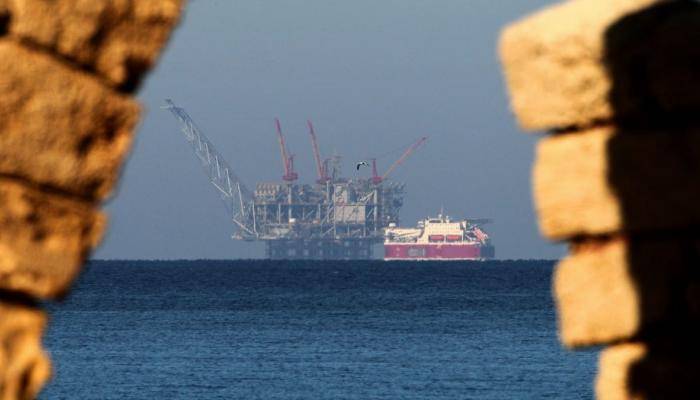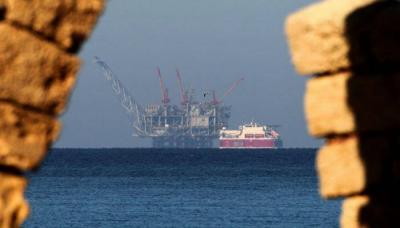Political parties celebrated the signing of the maritime border demarcation agreement between Lebanon and Israel, describing the agreement as a victory. This brought back discussions about Lebanon entering the club of oil-producing countries, despite the fact that not a single oil point or gas leak has appeared yet. Worse than celebrating a dubious victory is the rush to suggest that Lebanon can be pulled out of its economic, financial, social, and political crisis thanks to the soon-to-come gas, after urging Total to expedite its work towards exploration and extraction. However, the realities on the ground completely contradict the propaganda. A lack of trust, according to both international and local testimonies, means that change is not guaranteed.
**Popular Ownership**
The discussion about the existence of an oil and gas wealth in Lebanese waters was accompanied by a proposal to create a sovereign wealth fund to preserve revenue from this wealth and ensure it is spent on developmental projects that stimulate the economy and improve the living conditions of citizens. The Norwegian experience in this field was brought up. However, Lebanon is not Norway, and thus some opinions suggest that the sovereign fund would turn into a means of wasting money. A direct popular ownership is proposed as an alternative, which is what the Lebanese Institute for Market Studies suggests, evidenced by its report on "The Risks of the Sovereign Fund."
The Institute bases its rejection of the sovereign fund in the Lebanese model on the experience of the Central Bank of Lebanon's foreign currency reserves. The central bank "gave the reserve dollars to the government in a convoluted way." If the reserves were spent through dubious means, then "the money from the sovereign fund will be spent under the cover of development, which means funding electric, water, and other projects, facilitating the wastage of funds," as affirmed by the director of the institute, economist Patrick Mardini.
It is noted that the Lebanese government's tendency, if adopting the sovereign fund, would be to spend money on projects billed as developmental, which appears seemingly acceptable in light of the current crisis. This contradicts what other countries do, which, according to the Institute's report, "keep financial returns in the fund when oil and gas prices are high and spend from it when global prices decline, providing sustainability for public spending. Meanwhile, other countries prefer to invest the fund's money outside their borders, allowing for risk diversification and avoiding conflicts of interest and temptations of corruption. These funds buy safe bonds and shares in global companies, as Norway's sovereign fund does, holding a 1.4% stake in all listed companies worldwide."
Returning to the idea of popular ownership, Mardini refers in a discussion with "The Cities" to the experience of Texas in the United States, where the owner of the wealth underground is the landowner, not the state. The owner has the right to sell the wealth to the state or private companies, and if the well extends into neighboring land, the investor must give the landowner their share of the profits.
However, recognizing the right to direct ownership of the wealth and the mechanism for its management and benefit to individuals and the state in Lebanon "requires the development of laws." Mardini points out that implementing this model is not easy "and needs time." He also acknowledges the difficulties tied to this solution "because citizens on land own clearly defined and registered geographic areas, unlike the area at sea owned by the state. We have time, approximately 8 years, to extract oil and gas, and we can think about all the proposals during this time." He reveals that the institute "is working on scientific and legal models inspired by the Texas experience."
**Lack of Trust**
These proposals arise from a reality of a lack of local and international trust in the Lebanese political class. Mardini states that "the search for solutions stems from the absence of trust in the government and politicians. If our government were like the Norwegian government, which represents its people's interests, the sovereign fund would be a normal matter. But the government in Lebanon does not represent the interests of the Lebanese, so the search for solutions should come from outside the box, as all solutions based on state management always fail."
Internationally, the remarks of Kristalina Georgieva, the managing director of the fund, have yet to cool down. She called on politicians last Thursday to "work towards establishing stability in the country, prioritizing their country and people." Stability and the interests of the people are gradually achieved through initiating the missing reforms up to this point, prompting Georgieva to affirm that the fund "needs a clear commitment at the political level for Lebanon's stability, as we cannot do anything unless reforms are undertaken."
What is concerning regarding the lack of trust is the international community's failure to provide assurances about pressing the political class for necessary reforms. This implies that the community is not concerned about reforms and saving the economy and the Lebanese people, but rather about expediting the gas file in the region to ensure its supply to Europe amid the growing need for an alternative to Russian gas. Since Israel is an oil-rich state, the quickest solution was to demarcate the maritime borders and close the chapter on reforming the system in Lebanon by keeping its factions intact and afloat following the popular pressures they faced after the protests of October 17, 2019, and the Beirut port explosion on August 4, 2020. With this flotation and the absence of reforms alongside the maritime border demarcation contradicting the Lebanese national interest, signs of continued stagnation, inflation, and collapse emerge.




